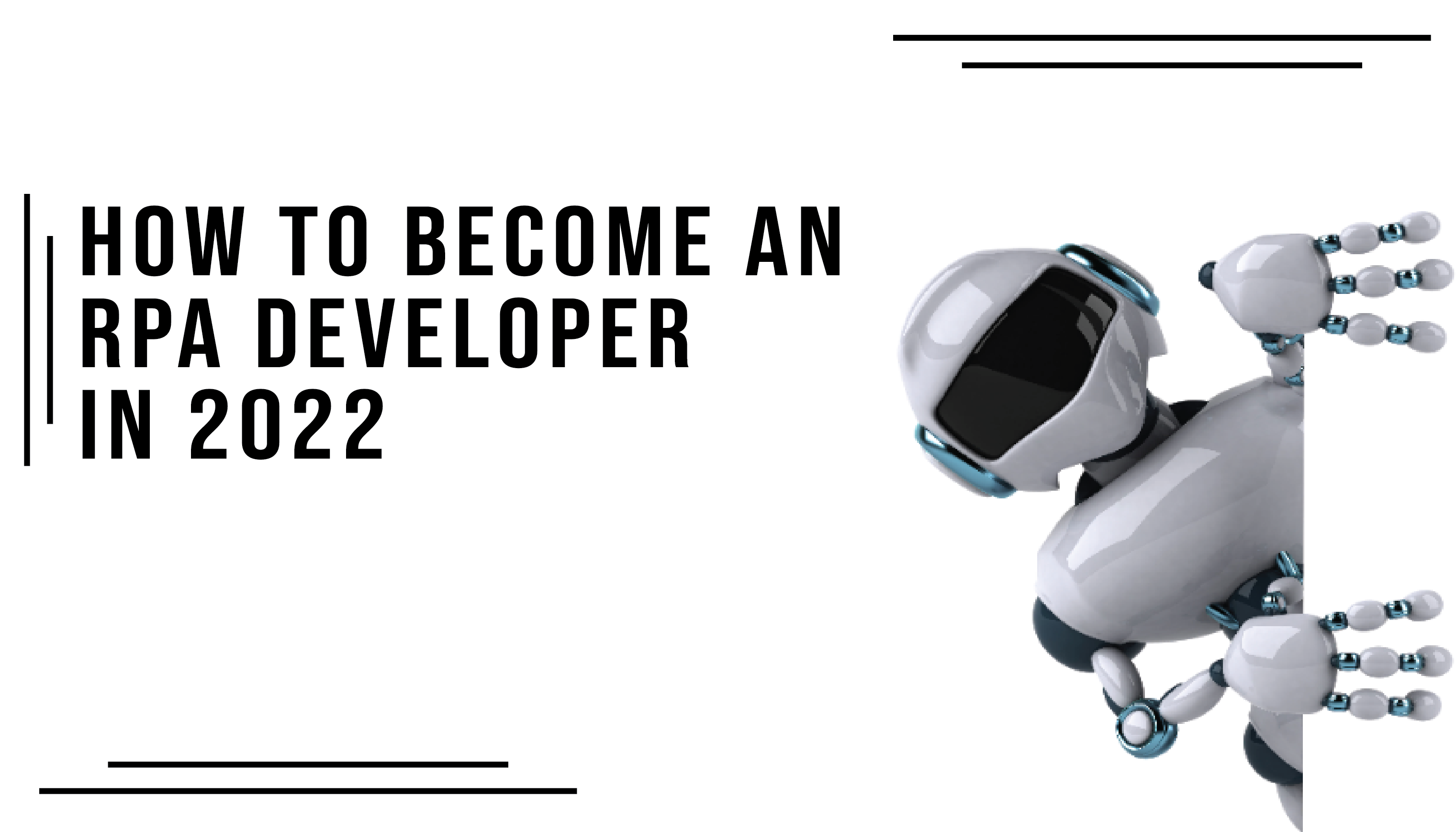Since hardware robots persist in the sphere of investment-heavy manufacturing, software robots came to be increasingly prominent in office work due to the increase in Robotic Process Automation RPA. As one of the fastest-growing industries according to Gartner, RPA led to the emergence of new careers. One of them is the RPA developer.
Robotic Process Automation is a method of assigning software bots formulated to do routine business chores. Data transmission or transaction authorizations are some of the vastly specific prosecutions for RPA automation.
What Is An RPA Developer?
An RPA Developer is a software coalition that directs the designing of those automation bots. While the phrase comprises the word “developer,” common tasks don’t approximate a particular software engineering habit, because an RPA developer wields the techniques of a software developer, a business analyst, and a project manager.
Relying on their knowledge level, an RPA developer will be credible for programming the actual bots or designing the ecosystem for automation tools. The level of management and architectural commitments will hinge on the company’s priorities and the RPA team's extent.
Desirable Skills For An RPA Developer
Span the technology viewpoint of RPA concerns, the proficiency to comprehend business-side desires and methods is also significant. Companies can hire an RPA developer with all this mastery, or build a team where each member carries some of the desired skills to the group.
* Coding Skills
Database integration is routine in RPA, Abel expanded that developers should also be aware of SQL. Web development programming languages are also effective, comprising HTML, CSS, and JavaScript. Ultimately, understanding Python will also help developers jot down the custom code and access libraries that expand RPA functionality.
* Knowing The Technology Environment
Employing managers need an automation team that entirely comprehends the organization's inner systems, as RPA requires integration with multiple enterprise systems.
* Knowledge Of Business Process
An RPA team desires experts who comprehend the enterprise's business and the processes that propel it. This technique is what will help them recognize which methods are decent prospects for RPA or another form of automation.
* Process Mapping Skills
RPA developers can clarify processes down to their most essential portions, trace the action of each of those parts, and map the progression of judgment reasoning through a software system.
* Changing Management Capabilities
RPA development teams need knowledge in technical modification administration. Updates made to procedures incorporated with automated methods could develop an undesirable consequence.
* Data Analytics Experience
RPA transforms complex data clubs and processes knowledge into a set of defined ordinances used to organize and automate tasks.
* Experience With The RPA Platform
While coding techniques are an enormous part of RPA, nominees who are eligible for these platforms may not certainly desire comprehensive coding techniques or techniques in a spectrum of programming terminologies to get the function accomplished.
Future Of RPA
Despite furnishing great retrievals on investments, RPA projects repeatedly flunk to confront business goals. Several achieve fast achievement with modest RPA projects and acknowledge great returns. Still, when leaders peek into the prospect of RPA, they understand that bot expenditure commitments and maintenance increase costs over time.
RPA adoption is looming in a realm where companies encounter preceded social distancing necessities and growing economic anxiety as a result of the pestilence. The technology is encouraging organizations across the globe to improve efficiencies, strengthen digital customer understanding and drive productivity to keep velocity with the pressures of the new conventional.
RPA is all about automating duplicative, rule-based digital chores, with software robots interacting with applications and information sources in much the exact way human workers do.
Cognitive automation can handle exceptions and orchestrate decisions spanning entire processes, compared to RPA, which is about executing repeatable tasks with the highest level of efficiency.
Whereas traditional RPA automates processes based on data in structured databases, intelligent automation can also work with unstructured data sources, including scanned documents, emails, letters, and voice recordings.
The technology is ‘cognitive’ in the significance that it imitates human cognitive processes like:
1. Learning—acquiring evidence and contextual regulations for using the information
2. Reasoning—using context and regulations to reach decisions
3. Self-correction—learning from the ordeal
NICE is the most competent RPA merchant in demand and has a trial record as a colonist in RPA and accompanied automation. We speculate forcefully that there is a vital human factor to the future of RPA—innate and vigorous attended automation will be key to elevating digital experiences for customers and employees alike.
Conclusion
A vocation in RPA is contemplated to be very beneficial. The ensuing graduates can effortlessly anticipate a crucial investment in employment reliefs in the world. Moreover, expend cartons for professionals with skill-sets in this gap are moderately greater when distinguished from other fields.
Numerous human jobs can be easily automated using RPA tools and technology. The future scope of RPA can be observed in the field of data entry and data rekeying jobs. These tasks could be easily automated with RPA.














Post Comments